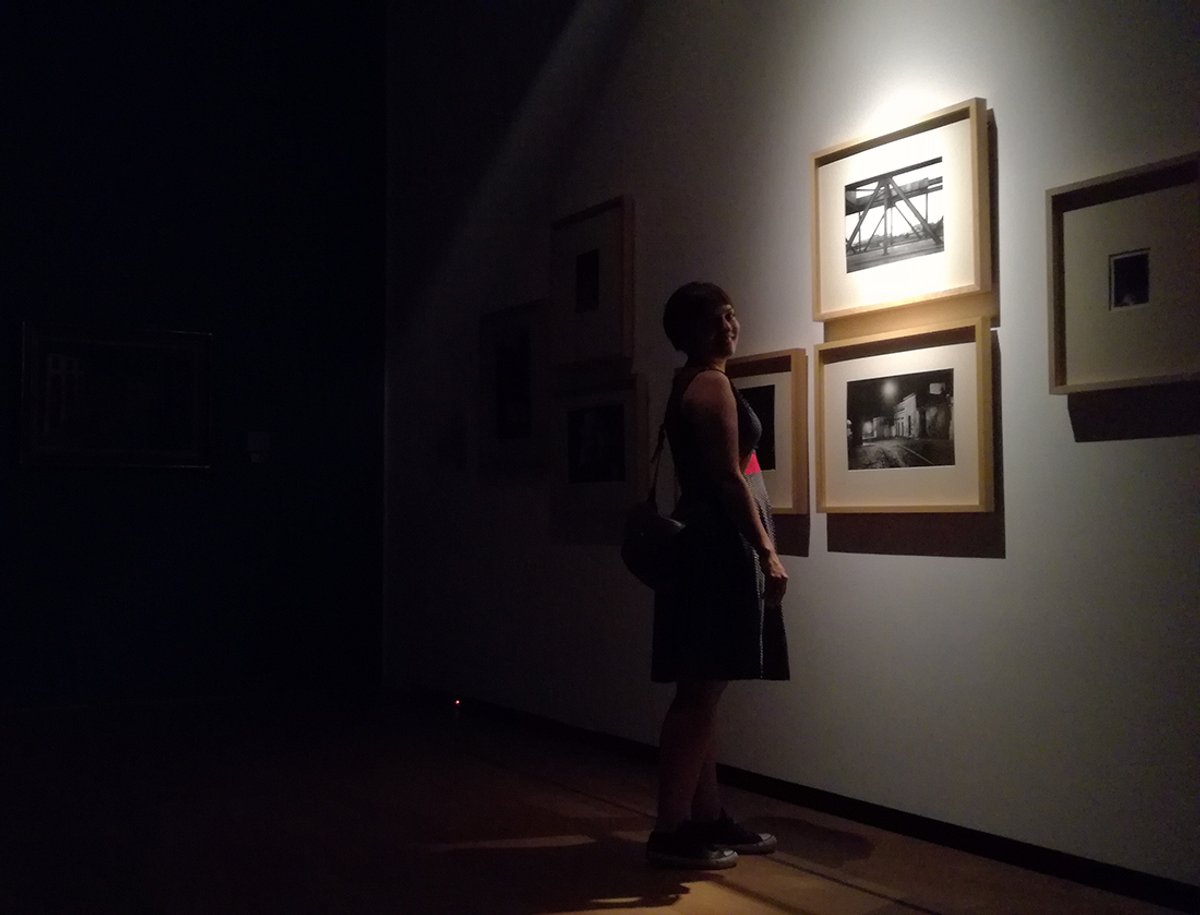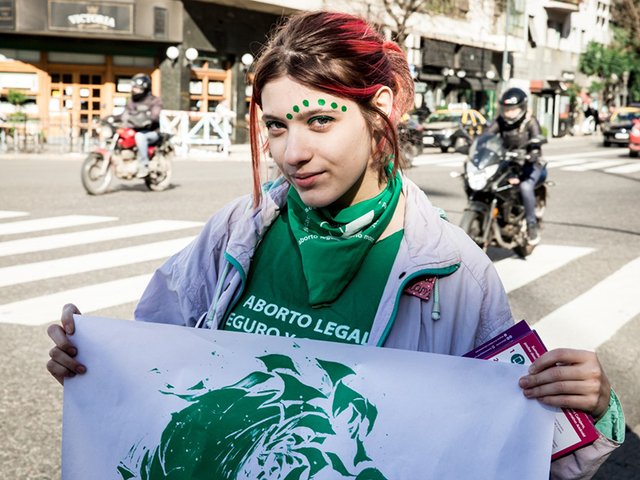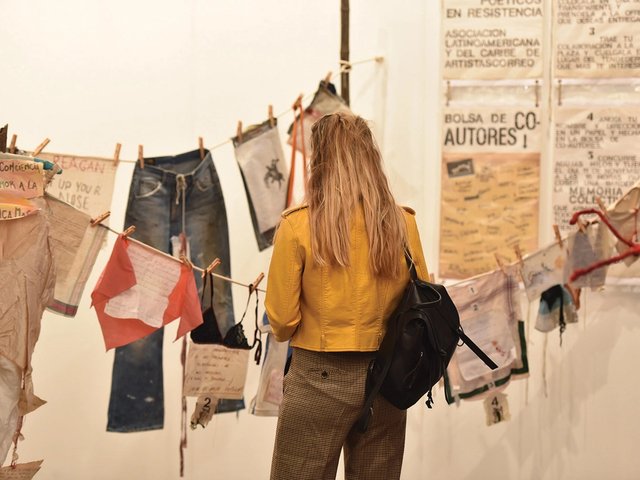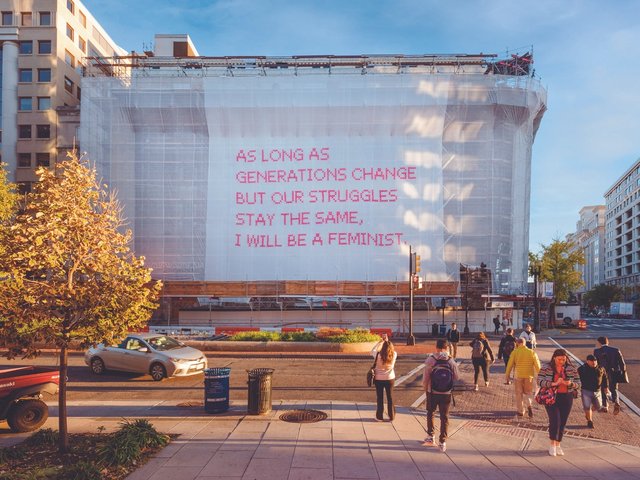A movement of around 200 women in the arts in Argentina, Nosotras Proponemos (We Propose), a “Permanent Assembly of Women Art Workers”, is planning dozens of events for International Women’s Day on 8 March, and throughout the month—with plans to continue their mission of equality in arts institutions well past March.
The movement was formed last November after a group of women began collaboratively drafting what would eventually become the movement’s manifesto, Declaration of Commitment to Feminist Practices in Art, on Facebook, which now has around 2,000 signatures and is available in four languages. “We worked naturally in a non-authoritarian way,” explains Andrea Guinta, the co-curator of the landmark exhibition Radical Women: Latin American Art, 1960-85, due to travel to the Brooklyn Museum in April, and one of the first contributors to the document, which she calls a “compromise”. The first of its 37 points and demands calls for parity in representation in the art world, from museum positions to solo shows to institutional awards like the national Prize of Honour—given to only five women since it was launched in 1911 (versus 92 men).
Nosotras Propomenos “is part of a larger movement”, says the member Nora Fisch, who owns an eponymous gallery in Buenos Aires. A strong surge of feminism has grown in Argentina since the birth of the collective Ni Una Menos (Not One Less), which formed in 2015 in response to brutal femicides in the country—where a woman is killed due to gender-related violence every 30 hours—and also advocates for the legalisation of abortion.
Around 30 art institutions throughout Argentina will host more than 60 actions this month, including exhibitions, interventions in museum displays and performances. “Mostly I would say we were met with a lot of enthusiasm” when approaching institutions, Fisch says. (Only “two or three” in the country’s conservative northwest declined to participate, she says.)
Among the first institution to come on board was the National Museum of Fine Arts (MNBA), in Buenos Aires, which will brightly illuminate works by women in its permanent collection display, while dimming the lights on the works by men. “It’s a very powerful metaphor,” Fisch says. “I think that the atmosphere in the museum is going to be very strange… because there are very few artworks by women. It’s going to be in the semi-darkness.” MNBA is also mounting a permanent collection show of 33 works, all by women artists including Elba Bairon, Liliana Porter and Graciela Sacco, whose death in November was a catalyst for the movement.
The Museum of Latin American Art of Buenos Aires (Museo de Arte Latinoamericano de Buenos Aires, MALBA)—where the curator Agustín Pérez Rubio has “made a point of including women’s work in [the] programming”, Fisch says, including shows of Yoko Ono, Diane Arbus and Alicia Penalba—will paste the names of around 900 female Argentine artists, both historic and contemporary, on letter-sized sheets of paper to its façade on 8 March. On 9 March, a group of around 30 artists from the movement, plans to perform a feminist poem by an Argentinean writer, Susana Thenon, which will be filmed. MALBA was chosen as the location because the museum “has been actively working for change in the percentage of representation and for creating new knowledge” such as “opening up the work of unknown artists”, Giunta says.
Other participating institutions include the National Museum of Neuquen in Patagonia and the Juan B. Castagnino Municipal Museum of Fine Arts in Rosario. “I think what we are asking the institutions is a commitment to changing the programming to take into account more gender equality,” Fisch says.
More than quotas, Fisch feels that change needs to come from “something much more internalised”. “When you realise that maybe that maybe there are unconscious mechanisms that lead people to give priority or more legitimacy or more value to the work of men, because it has been like that for hundreds of years… when people start becoming aware of that, then I think people naturally change their choices—that’s my personal opinion”, she says.
“March the 8th is just the beginning—it’s the departing point,” Giunta says. “It’s not a day for making a spectacle and nothing changes. It’s the beginning for something that we are really committed to change.”





